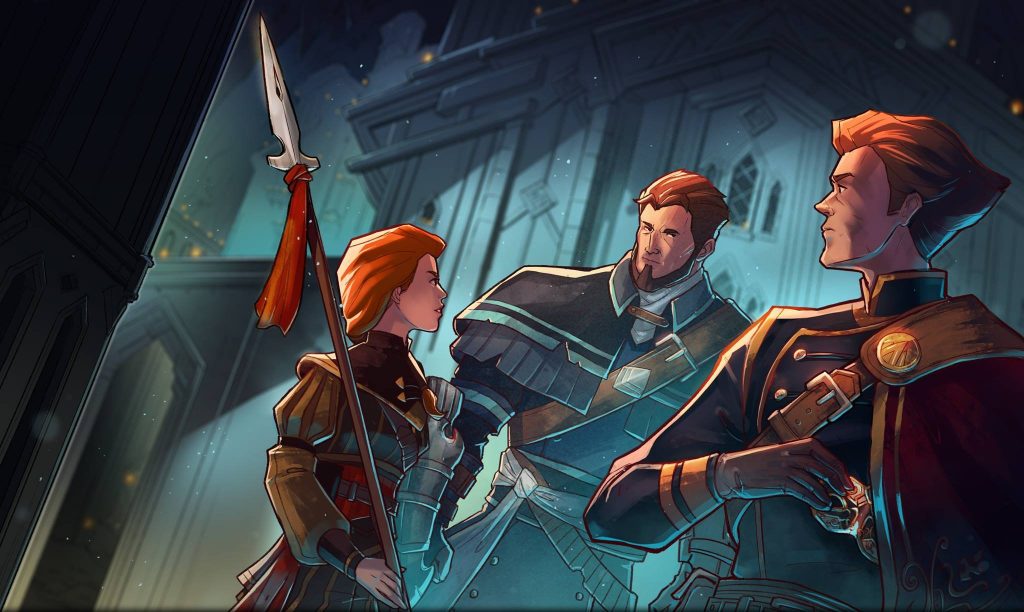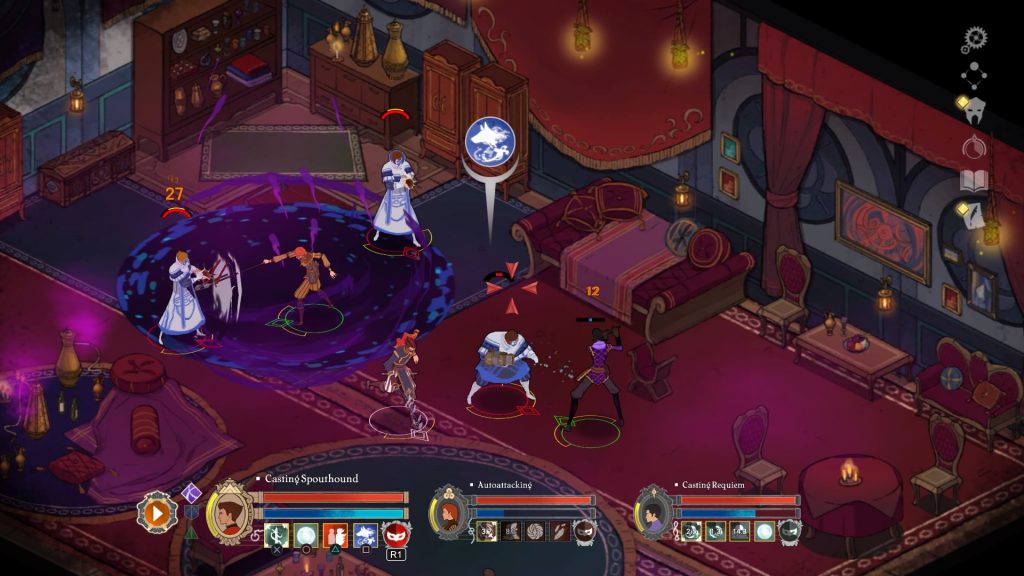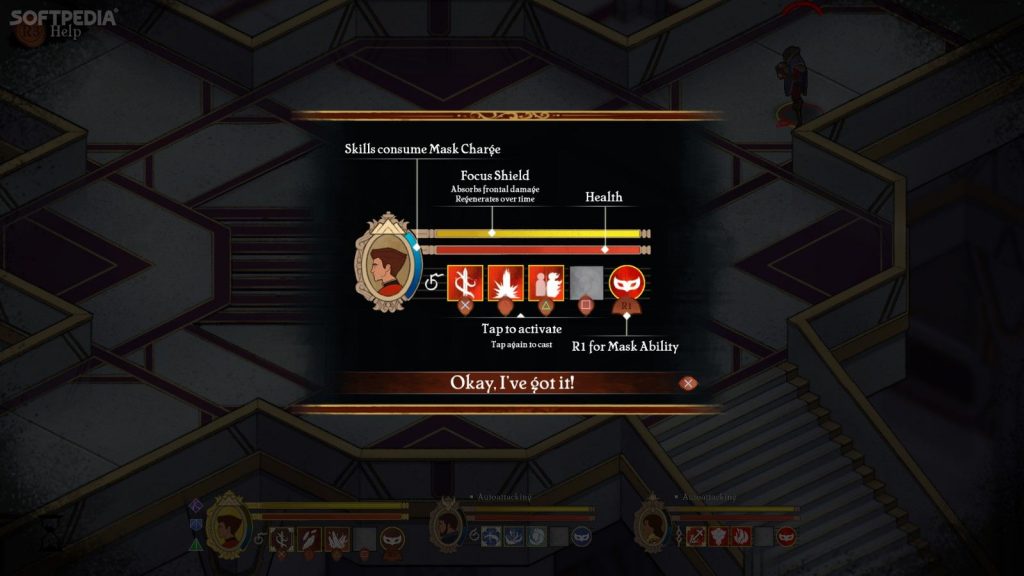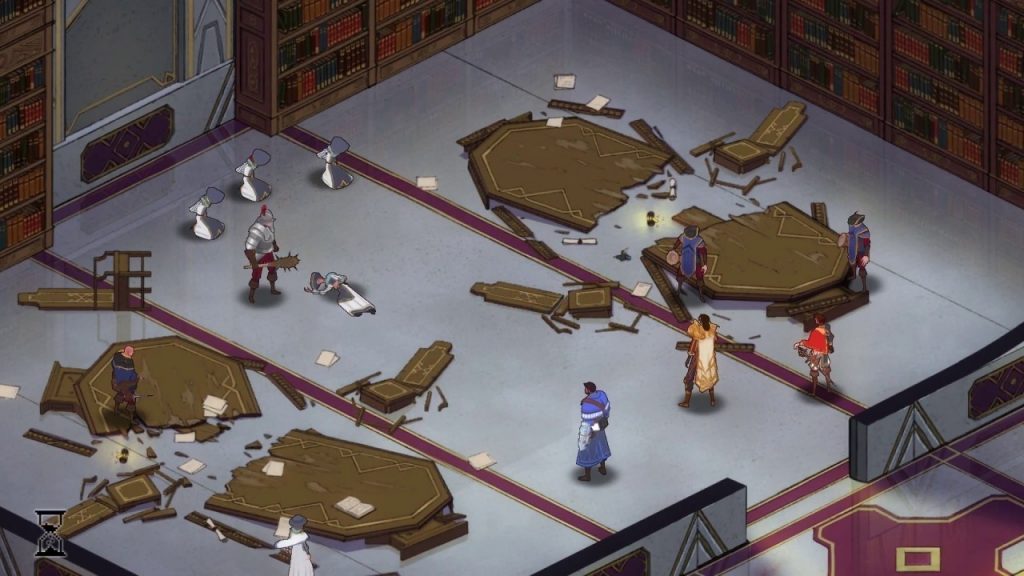Review | Masquerada: Songs and Shadows
Masquerada: Songs and Shadows (PS4 version reviewed)
With its beautiful, fantasy interpretation of Southern Europe during The Renaissance, Masquerada: Songs and Shadows offers a modern, yet completely linear take on the classic isometric RPG. It features a company based battle system that can be played entirely in real time, or through the use of tactical use of the pause button, and it has a compact and interesting story that is supported by a rich and unique lore.
If Carlsberg wrote reviews and packaged them into a single paragraph, then I think that would cover Masquerada quite well, even if I do say so myself. That said, I prefer a beer with a bit more body, just as you probably prefer a longer review, so by Jove, you’re going to get one! I’ll begin by saying how pleasant it is to once again see an indie title with such a focus on lore, story and unique visuals. Masquerada is a real treat in all these areas, and it provides a real tonic against the generic, big budget titles that so often take centre stage.

I said earlier that it’s a linear game, and it is – with little or no replay value – but at ten to twelve hours long, that’s not the end of the world. Why up to two hours (or twenty percent for you mathematicians) possible variance then? Well, that will be the lore. Players can become totally lost in the world of Masquerada should they wish, and it does a fantastic job of providing page after page of detail for players to wade through. The story is just as intriguing, even without the lore, and it tells a tale of class struggles and strife, against a backdrop of simmering rebellion.
Players are introduced to the Citte of Ombre through the eyes of Cyrus Gavar, a man who chooses to turn his back on the ruling class by using his power to grant Mascherines (a kind of magic face mask) to members of the underclass, thus empowering them into open rebellion. Five years later, following a dramatic showdown, the exiled Cicero Gavar (brother of Cyrus, and innocent in the war) is summoned back to the city, and given an offer that he cannot refuse.

What follows are the usual RPG introductions, but it’s all dealt with rather promptly. Cicero receives his own Mascherine and chooses a class, each of which is aligned to one of the four elements; earth, wind, fire and water. Each class provides different attacks, skills and passive abilities, which are unlocked along four different tracks that are a little bit reminiscent of a sheet of music. Although this is purely an artistic benefit, it is another tiny detail that I really like about Masquerada, and it speaks a lot about the attention to detail from developer Witching Hour Studios.
Cicero is also introduced to the supporting cast of both party and non-party members fairly quickly, and there is quite a decent and diverse cast here. From the hard, uncompromising rebel leader Lissandra, to Mira, the blind guardian of the Hall of Songs, Masquerada features people of varied sex and ethnicity in a number of key roles, and despite the focus on class struggle, the game delivers its message in a purely make-believe setting.

Unfortunately, whilst lore, story and voice acting are all very well handled, the battle system in Masquerada is a little bit chaotic, and not nearly as fun as it should be. Fights happen incredibly fast, and feel more like a less engaging equivalent of Diablo, rather than the more serious, isometric RPG’s that I think Masquerada is intended to nod towards. A basic attack is delivered by holding down a single button, and other skills such as special attacks and buffs are delivered using the other buttons.
It is possible to change characters mid-battle, and to setup orders and combos etc, but combat just lacks the satisfaction of most similar games. It’s often hard to tell who your current character is targeting, and there is no “lock on and attack” kind of feature, which was a shame. There are still tactical options such as buffs etc to be deployed, but the pace and relatively short duration of fights often makes these feel a little redundant. There are boss fights and they do offer a different dynamic, but on the whole I found fighting in Masquerada to be secondary to progressing the story.

Whilst I am unfortunately ending on a fairly negative note, I wish I wasn’t, because I really did enjoy Masquerada for the short and linear time I spent with it. It has a really interesting and enjoyable story, and the quality of the lore and voice acting indicates to me that it is a real labour of love for those that made it. It looks fabulous and has an art style that matches the thematic ambitions of both the story and the supporting lore.
The combat is a major downside, if you were expecting a combat focussed RPG, but I guess this is me telling you not to come into Masquerada thinking that it is the next Van Helsing or Viktor Vran. Instead, it’s a vibrant, independently developed adventure that has a proper, interesting tale to tell, and it is relatively undemanding of the player. You can’t really get lost, you don’t need to search for a myriad of pointless collectables, and you can’t grind anything. Just sit back, crack open a high quality beverage of your own preference, and enjoy suspending your disbelief for a while.
Comments are closed.